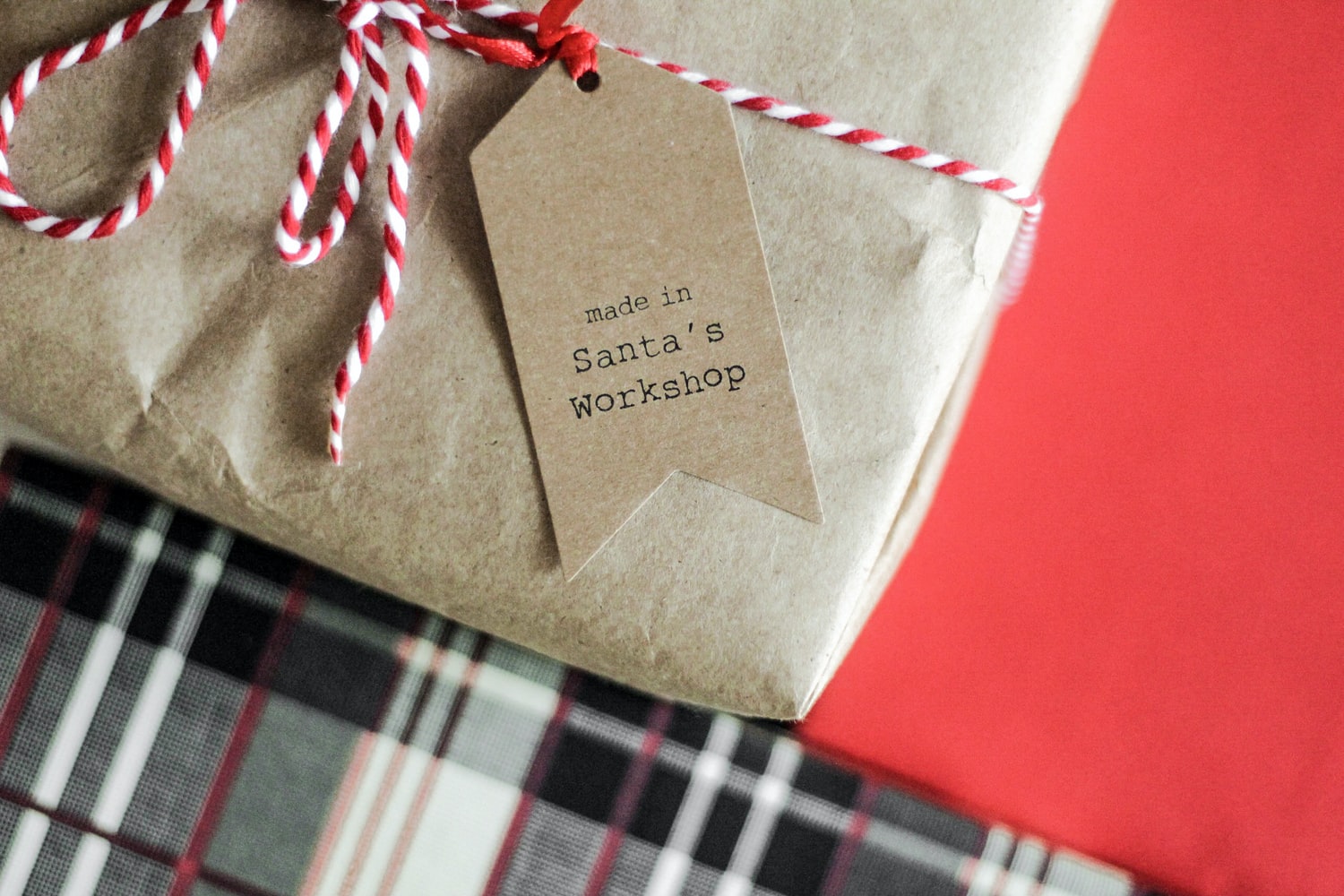Mental Health Holiday Gift Guide: 5 tips for meaningful presents
The 2021 holiday season may look different for a lot of us, but the level of stress and pressure we put on ourselves to buy (and receive) the perfect gifts seems ever-higher, which begs the question: Why do we beat ourselves up so much when it comes to gift exchanging?
Partially, this may have to do with how good we feel when we do something for other people. Studies show that helping others, whether is by engaging in random acts of kindness, or buying a gift for a loved one, can lower our stress levels.
Yet, paradoxically, because we crave that happiness boost gift giving can bring us, we might become quite stressed looking for the perfect gift for everyone. So, today I share with you five science-backed tips to bring more meaning and less stress to your holiday gifting.
5 tips for giving and receiving better gifts

1. Trust the dollar bill
Some will say it’s lazy, others that it’s unoriginal. Honestly? Cash can actually be a good present. Truth is, money is a taboo in many cultures (looking at you, Brits), and that shows in the way we think about presents too. We’re encouraged to attach a value to a present solely based on how much it cost, often not understanding that if you’re not really into, say, gadgets, you probably won’t be thrilled about getting the latest iPhone. Yes, it cost a lot of money, but is just not your thing. Cue: feelings of guilt on one side, and disappointment on the other.
Money, on the other hand, is—whether we like it or not—a means of offering autonomy. Pros include not having to buy something right away (unlike gift cards), and you can also save it, if you want to. Bottom line? It’s 100% better to receive cash than a gift you don’t really like (especially when there’s no receipt).
2. Think about co-experiences
You’ve probably heard that experiences make for better gifts than material goods, but do you know why? It has to do with how happy it makes you feel. In fact, there’s scientific evidence that shows experiences—like concerts, travelling, or spa treatments—have a more lasting impact on our happiness than owning stuff.
In addition, multiple studies show that strong social connections also make us happier—hence why co-experiences can be such a valuable gift. The best part? Co-experiences don’t have to be super extravagant tropical island vacations. It can be something as simple as booking a couple massage, or meeting with a friend at a new restaurant in town to taste the house specials.
3. Give the gift of time
Another gift strategy I heard about in ‘The Happiness Lab’ podcast is to give the gift of time. This can mean volunteering to do a task you know your friend, partner, or relative has been dreading. Maybe something small and ridiculous they didn’t get around to do, or something larger they’re not prioritizing.
You can renew your mom’s favourite magazine subscription, for example, or enrol her in that pottery class she always wanted to attend. Know a parent in desperate need to go out? Offer them a night of babysitting. Multiple studies show that random acts of kindness can improve our general wellbeing, so it’s a win-win situation. They’ll appreciate the gesture, and you’ll be feeling better after this simple act of generosity.
4. Show gratitude and appreciation
As someone who’s been journaling every day for a couple of years now, I’m that irritating person who’s always babbling about how great gratitude journals are. Truth is, writing down a list of things that you’re grateful for can really make you happier. In fact, a 2003 study shows that counting the good things in your life, instead of your burdens, can increase your subjective wellbeing.
You can also apply this strategy when exchanging presents. It’s as simple as showing gratitude by telling someone how you appreciated their gift. Either in person, over the phone, or in a “Thank You” note. Personally, I also like jotting it down in my journal, so I can eternalize that moment, and look back at it whenever I am feeling uninspired.
5. Cut yourself some slack
Last, but certainly not least, remember to take a break now and then. As someone who loves planning for Christmas, I know what it’s like to put impossible standards on yourself, only to feel miserable whenever something doesn’t go according to plan. Instead of doing this, make sure you’re prioritizing rest.
This can mean setting another day to finish your Christmas shopping, asking for advice on what to get that friend who seems to have everything already, or just having a nap. When you prioritize your wellbeing, you’ll be more present, and able to appreciate the company of others during this magical time.
Do you have any mindful gift exchanging tips? Let me know in the comments! 😊
This article was inspired by the work of Professor Laurie Santos, and made possible through the encouragement of my accountability buddy, Linda Druzhinina.
Pin me for later…


